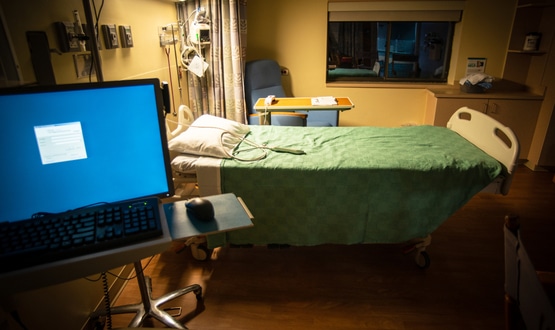Guy’s and St Thomas’ NHS Foundation Trust and King’s College London have revealed that using artificial intelligence (AI) techniques for some of the routine elements of an ultrasound could save up to 7.5minutes per scan.
As well as offering significant time savings, the sonographers involved in the study felt that AI techniques would help free them up to focus on interpreting the scans, meaning high standards of patient care are maintained.
The small study from Guy’s and King’s College involved 23 pregnant women having their mid-pregnancy scan, to screen for anomalies and check the baby’s development. Patients each received a regular scan and an AI-assisted scan, performed by separate sonographers. A third sonographer then independently compared the images to assess the quality of each scan.
No significant differences were detected in the foetal measurements recorded between the two techniques. When it came to the saved image quality, the AI tool achieved a satisfactory image in 93% of cases, compared to 98% for the conventional scan.
Lead author, Jacqueline Matthew, NIHR clinical doctoral research fellow at King’s College London, said: “This study demonstrates the feasibility of translating artificial intelligence from the biomedical research domain to a real world clinical application that could have significant benefits for patients and staff in antenatal screening and diagnostic services.”
The time-saving figures were based on busy sonographers performing up to 12 scans a day. According to the research the types of jobs that could be carried out by the AI included saving and measuring the images and creating automatic reports and other manually repetitive tasks.
The sonographers reported that they experienced less task switching during the scan, which saved them significant amounts of time. The results also have important implications for reducing recognised human error and variations when taking measurements.
Professor John Simpson, professor of paediatric and fetal cardiology at Evelina London, added: “Using artificial intelligence to assist those undertaking fetal anomaly scans has huge potential to improve workflow and quality. This study is an important step, which we are confident will be followed by further advances, such as automated recognition of anomalies to further assist the sonographer.
“The intelligent fetal imaging and diagnosis (iFIND) project team are continuing the development of the AI tools evaluated in this paper. In addition to recognising standard image views and foetal measurements, work is also ongoing to develop tools that can recognise specific anomalies before birth including serious heart conditions. The aim is to further support ultrasound specialists and improve the accuracy of these important examinations.”
Elsewhere, AI is also being used at Moorfield Eye Hospital – where a microchip was inserted as an implant that uses AI algorithms to help with blindness due to macular degeneration.

